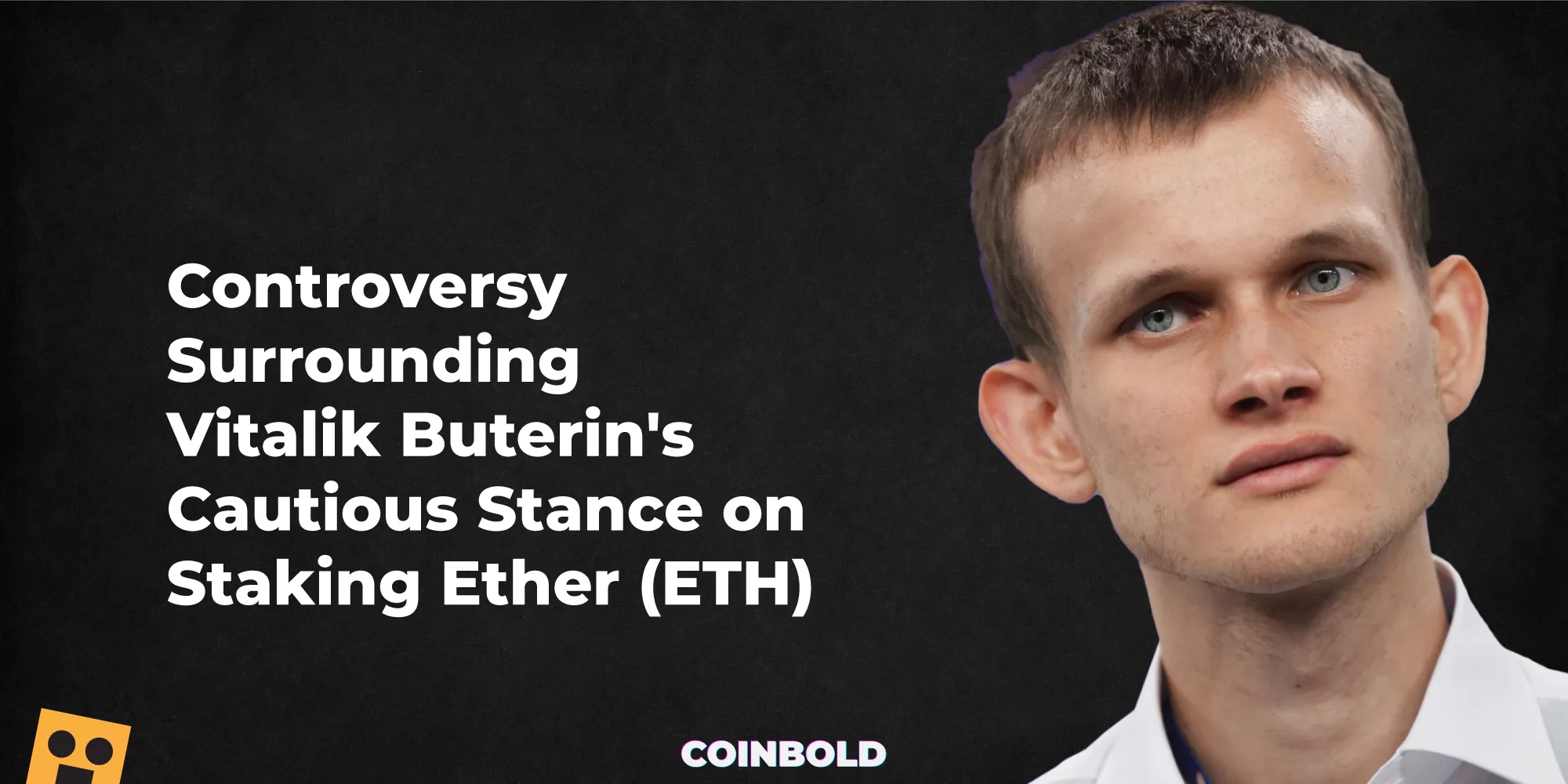Controversy has arisen within the cryptocurrency community as Vitalik Buterin, the co-founder of Ethereum, recently revealed his cautious approach towards staking his Ether (ETH) holdings. This article explores Buterin’s stance and the factors influencing his decision, while also addressing the broader implications for Ethereum and the ongoing debate within the community.
Vitalik Buterin’s Cautious Stance on Staking Ether
I had to listen to this a few times. I'm just at a loss for words. All of our Ada is staked. Guess what that's how it's supposed to be for a properly designed Proof of Stake protocol. https://t.co/ye6va1DH06
— Charles Hoskinson (@IOHK_Charles) June 29, 2023
During a Bankless podcast episode, Buterin shared his reservations about staking his Ether. He emphasized the complications associated with multi-signature wallets as the primary reason behind his decision. This disclosure has left many individuals, including Charles Hoskinson, co-founder of Ethereum and founder of Cardano, taken aback.
Complications with Multi-Signature Wallets
Buterin’s concerns about staking Ether revolve around the challenges posed by multi-signature wallets. These wallets, which require multiple signatures to authorize transactions, introduce complexities and potential security risks that Buterin wants to mitigate.
The EigenLayer Protocol and Centralization Risks
During the podcast, Buterin also discussed the EigenLayer protocol—an innovative concept that allows validators and stakers to re-stake their assets on emerging networks. However, Buterin expressed apprehension about potential centralization risks associated with the protocol. He stressed the importance of a cautious and constrained approach to its development.
Restaking Risks and the Importance of Constraints
Sreeram Kaanan, the founder of EigenLayer, echoed Buterin’s concerns regarding restaking. He acknowledged the inherent complexity and risks involved in this process. Kaanan emphasized the need to establish appropriate constraints to ensure the ecosystem’s safety and prevent any potential negative consequences arising from this novel concept.
Ethereum’s Shortcomings and the Need for Scaling Infrastructure
Buterin’s cautious stance on staking Ether aligns with his previous remarks about the limitations of the Ethereum blockchain without adequate scaling infrastructure. He emphasized the necessity of affordable transactions and highlighted the challenges posed by smart contract wallets. These wallets can lead to user experience complexities, particularly when managing multiple addresses simultaneously.
User Experience Complexities with Smart Contract Wallets
Smart contract wallets can introduce complexities in managing multiple addresses, creating potential hurdles for users. Buterin recognizes the importance of addressing these challenges to improve the usability and accessibility of the Ethereum ecosystem.
A Lively Debate within the Cryptocurrency Community
Buterin’s measured approach to staking and his insights into the risks associated with new protocols have sparked a lively debate within the cryptocurrency community. Some commend his cautious outlook, appreciating his focus on risk management. However, others express concerns about the potential impact on Ethereum’s progress and the need for continued innovation.
Balancing Innovation and Risk Management
The ongoing dialogue surrounding Buterin’s stance highlights
the delicate balance between innovation and risk management in the rapidly evolving world of cryptocurrencies. It underscores the importance of taking measured steps to ensure the security and stability of blockchain ecosystems while fostering advancements.
Conclusion
Vitalik Buterin’s cautious stance on staking Ether reflects his concerns regarding multi-signature wallets and the potential risks associated with emerging protocols. His insights have initiated a thought-provoking conversation within the cryptocurrency community, emphasizing the need for a balanced approach to innovation and risk management. As Ethereum continues to evolve, striking this balance will be crucial to maintaining the network’s growth and resilience.
FAQs
1. What prompted Vitalik Buterin’s cautious stance on staking Ether?
Buterin’s decision was primarily influenced by the complications associated with multi-signature wallets, which introduced complexities and potential security risks.
2. What are multi-signature wallets?
Multi-signature wallets require multiple signatures to authorize transactions. They add an extra layer of security but can also introduce complexities.
3. What is the EigenLayer protocol?
The EigenLayer protocol allows validators and stakers to re-stake their assets on emerging networks. It aims to improve network scalability but raises concerns about potential centralization risks.
4. What are the challenges posed by smart contract wallets?
Smart contract wallets can create user experience complexities, especially when managing multiple addresses simultaneously.
5. Why is the debate around Buterin’s stance important?
The debate highlights the importance of balancing innovation and risk management in the cryptocurrency space. It encourages thoughtful discussions on navigating the challenges associated with new protocols and advancements.







